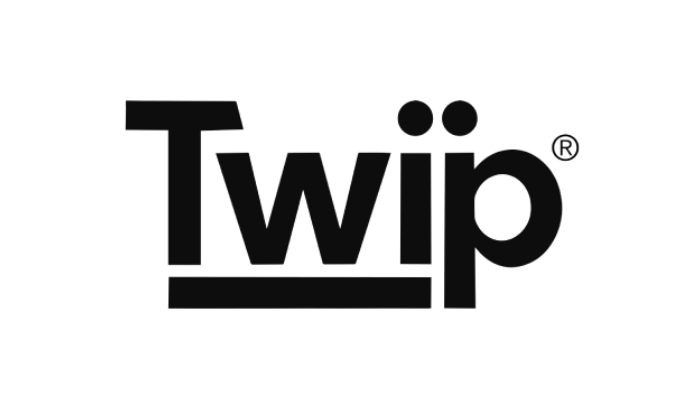How AI could benefit hostels: Interview with TWIP Co-founder Lauren Koenig
Lauren Koenig is the Co-founder and CEO of TWIP, a loyalty software utilising artificial intelligence and psychographic data to predict travel behaviour. Short for “Travel With Interesting People,” TWIP is capable of modelling what is dubbed ‘Travanality’.
“Travanality is your travel personality,” she explained. “It’s why you travel when you omit time, destination and price – everyone has one.”
According to Lauren, there are ten Travalnalities and it’s possible that you as a traveller can be a percentage of some or all of them. While it could sound like millennial marketing speak, TWIP is not aimed at a specific age group as Travanality attempts to access the universal desire for human connection.
Ahead of her appearance at the STAY WYSE Hostel Business Conference in Miami, Florida 19-20 November, WYSE Travel Confederation talked with Lauren about customer loyalty challenges for the youth travel market, if AI solutions are getting it right, and what the travel industry could do to support more female founders in travel tech.
You’ve described TWIP as a tool for fostering loyalty – what is the biggest challenge on the loyalty front in travel and how does TWIP help?
The largest challenge businesses face with customer loyalty continues to be providing relevant and useful personalised experiences. With TWIP, we give you a true picture of the behaviours and motivations of your consumers. Until this need is truly met, and smart technology like TWIP’S fully integrated into data solutions, there is no near challenger on the loyalty horizon.
How much stock should we put in AI solutions to cultivate loyalty?
AI can be better than we are at predicting behaviour. With only 100 points of the right data, properly trained AI can make the same choice we would in certain situations — and with 150, it will be almost 100% accurate. I’d trust an AI solution more than I would most marketing people.
What’s wrong with marketing people?
A human can only make decisions based on their own intuition, knowledge and experience — and only focus on one thing at a time. AIs have the benefit of using the knowledge and experience of thousands of humans — and other machines — to make decisions, which they make more quickly as they multitask.
How long does it take to train AI for Travanality? What is the evidence that it’s effective?
Training the AI is an ongoing process that we have been working on for years so far — it will get more refined as more people are added to the system. We know that it is already effective, however, as people have self-identified with their results and have found compatibility with the matches placed.
How do you see acquisition and retention when it comes to younger travellers. Are there particular marketing challenges?
Today’s young traveller has been brought up in a world where they can search for everything on their own via aggregators, and the only differentiators are price and any extras that tour operators and OTAs add on. To win their loyalty, you’ll need to give them perks they care about — and stand out from the crowd. When working with our client SkyRoam, it was great to hear from them that they identified with their own Travanalities and were able to understand their customers better and make better-informed marketing decisions.
Can you give an example of how this might work for a hostel or hotel?
When a hostel adds the Travanality score to their offerings, it can help other travellers to identify ahead of time who they might want to share a room with. They may offer a reservation system with rooms for compatible types — for example, one room that contains Mavericks and Victors, and another that has Purists and Soulagers. This will ensure that everyone staying will have more compatible bunk mates, might stay longer and likely write more favourable reviews.
TWIP was a Runner Up for the People’s Choice Award at Phocuswright’s 2017 Innovation Platform – that’s not an easy feat! What did you take away from that experience and what advice would you give to other start up founders?
People’s Choice is an important distinction for us, as it proves to us that TWIP is something that the market actually wants. Our advice is to take as much input as you can from other people, but don’t let it distract you from your vision.
What can the travel industry do to help start-ups?
We definitely need more support when launching pilots as well as with the challenge of funding — and there need to be more female role models in the travel sector.
Are there industry resources that you’ve found helpful as a female founder?
The best resources I’ve found have been all the market research reports and surveys released by Accenture, PWC, and local tourism boards. They’re immensely useful in helping shape the future of any travel company. Also, Voyager HQ is the only travel community that puts ‘the little guys’ first and this has been an immense resource for our company.
Is there something your team is doing to mentor women in travel tech?
Myself and my co-founder are both actively involved in speaking at conferences, writing, and mentoring girls and women in technology — travel included — to ensure that we have better female role models for the next generation.
What’s on the horizon for TWIP in 2020?
We have some great things in the works that we’ll be excited to announce soon!
You can meet Lauren and learn more about TWIP and Travanality at the STAY WYSE Hostel Business Conference in Miami, Florida 19-20 November 2019.

